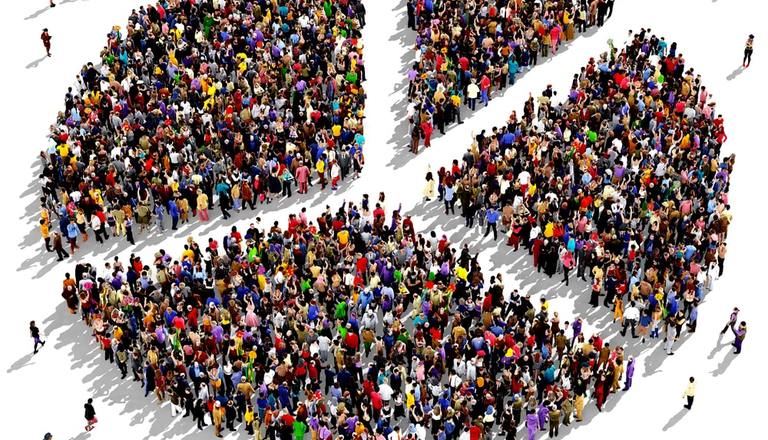
A look at lottery demographics
Most people love to play the lottery and they come from all walks of life, from rich and poor, elite and unknown, unemployed and CEO. And the allure of the lottery has captured the imaginations of millions of these players around the world. From scratch-off tickets to massive jackpot draws, lotteries offer an attractive glimpse at the possibility of instant wealth. But who are the people lining up to purchase these tickets, and what motivates them to try their luck?
As stated above, lottery players come from all walks of life, and their characteristics vary widely. Here are some of the demographics that show who plays the lottery:
Lottery Demographics
Age: Participation in the lottery varies significantly with age. Research shows that younger individuals, particularly those between the ages of 18 and 34, are less likely to play the lottery than their older counterparts. Older adults end to be more frequent players.
Income: Income plays quite the crucial role in lottery participation. People with lower incomes are more likely to play the lottery, as they may see it as a potential solution to financial difficulties. On the other hand, higher-income individuals may view the lottery simply as a form of entertainment rather than a financial necessity.
Education: Education levels also influence lottery participation. Studies have shown that individuals with lower levels of education are more likely to play the lottery. This might be attributed to a lack of financial literacy or a perception that the lottery is a viable path to financial security.
Gender: Gender does not seem to be a significant factor in determining who plays the lottery. Both men and women participate in equally similar amounts, dispelling any gender-based stereotypes about lottery players.
Marital Status: Interestingly, married individuals are slightly less likely to play the lottery than those who are single, divorced, or widowed. This might be due to shared financial responsibilities and a more conservative approach to gambling within one or both partners in married couples.
The motivations behind playing the lottery is also important to understand who participates and why. Here are some common reasons people play the lottery:
The Reasons Why
Hope for Financial Improvement: For many, the lottery represents hope for a better financial stability, now and in the future. Individuals facing economic hardships may see it as a chance to escape poverty or debt. This hope can be a powerful motivator.
Entertainment: Some people view the lottery as a form of entertainment. The excitement of buying a ticket and the anticipation of the draw can provide a sense of thrill and excitement, even if they don't win.
Social Pressure: Peer influence and social pressure can also play a role. Friends or family members who regularly play the lottery may encourage others to join in, making it a shared experience. Depending on the person being encouraged, this could be a good thing or a bad thing.
Lack of Financial Skills: A lack of financial skills can lead some players to believe that the lottery is a viable investment strategy. They may not fully understand the odds against winning any prize, especially the jackpot, and probabilities of winning those prizes.
Superstitions and Rituals: Some lottery players have extreme superstitions or rituals they believe will improve their chances of winning. These rituals can range from selecting specific numbers to buying tickets at certain locations. This beleif is not limited to the fringe players. Even highly educated scientific types may very deep rooted superstitions or rituals.
Lotteries have a significant impact on both individuals, and society as a whole. Here are some key aspects of their impact:
The Impact of the Lottery
Revenue Generation: Lotteries generate substantially high revenue for governments, which is often earmarked for various public initiatives, including education, healthcare, and infrastructure. In this way, lottery play contributes to funding essential services, and a lot of players understand this and buy tickets knowing their money is going to help those less fortunate.
Problem Gambling: While most people play the lottery responsibly, it can be highly addictive for some. Problem gambling can lead to severe financial difficulties, strained relationships, and other very negative consequences. Efforts by both the lottery operator and lottery regulator are made to provide support to prevent lottery addiction, or support for those who are currently addicted to playing the lottery.
Income Inequality: Lotteries are often criticized for being a form of “voluntary” taxation. Since lower-income individuals are more likely to play the lottery, they actually end up contributing a larger portion of their income to the lottery, which just creates and fuels income inequality.
These demographics of lottery players are quite diverse, reflecting a wide range of ages, incomes, and educational backgrounds. People are motivated to play the lottery for various reasons, including the hope for financial improvement, entertainment, and social pressure. Lotteries have a substantial impact on individuals and society, generating revenue for governments, but also posing risks related to problem gambling and income inequality. As lotteries continue to be a popular form of gambling, it is essential to understand who exactly plays and why, in order to address both the positive and negative aspects of who plays the lottery.
